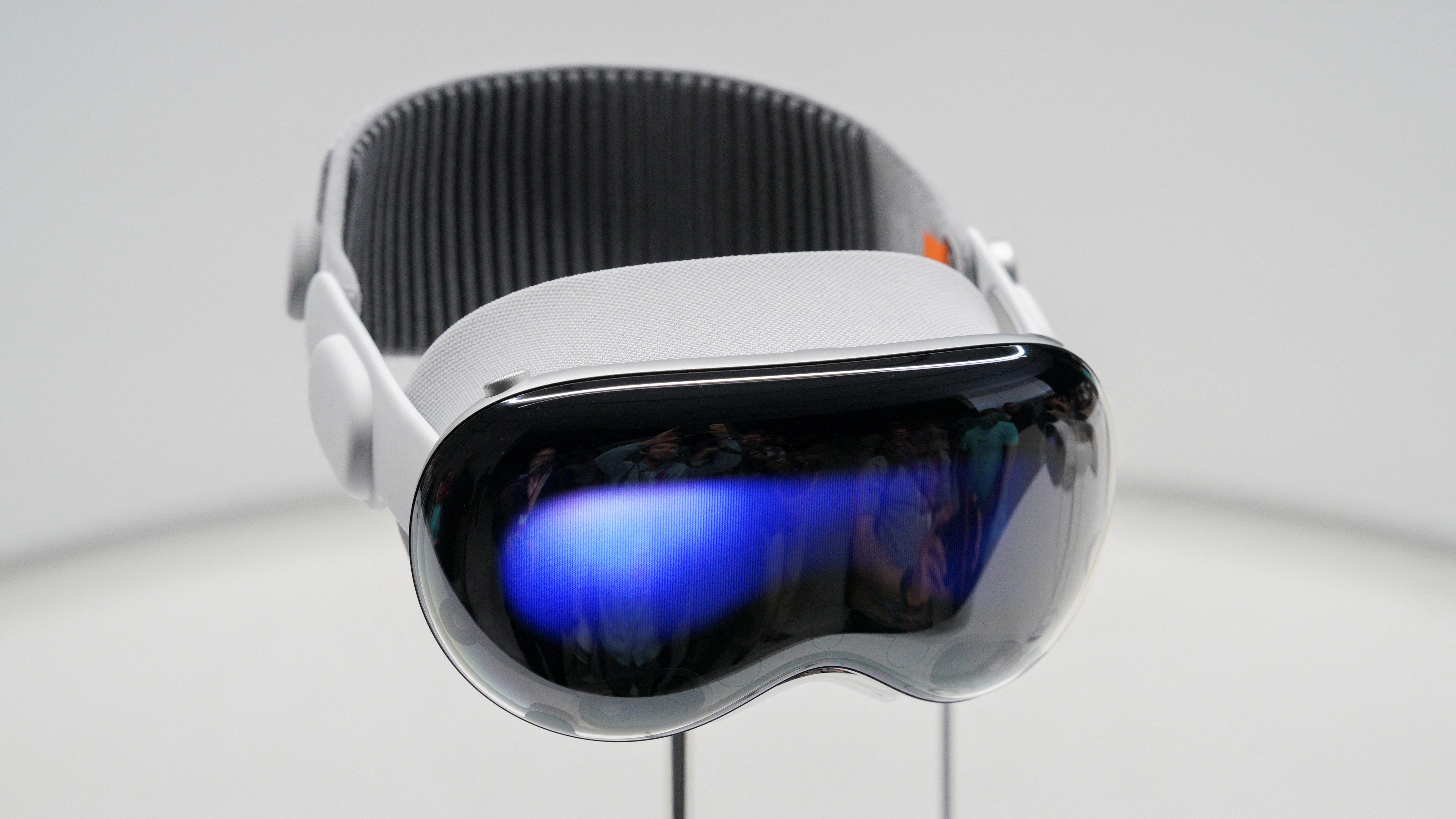Someone get Mark Zuckerberg a gadget review YouTube channel, stat.
The Meta CEO on Monday posted a video review of Apple’s Vision Pro, the new rival mixed reality headset to Meta’s Quest 3.
“Alright, guys, so, I finally tried Apple’s Vision Pro,” Zuckerberg begins in the video, which was posted to his Instagram.
“Before this, I expected that Quest would be the better value for most people because it’s really good and it’s like seven times less expensive,” he said, referencing Quest 3’s $500 starting price tag compared to $3,500 for the Vision Pro. “But after using it, I don’t just think Quest is the better value, I think Quest is the better product, period.”
Reader, I know you didn’t see that coming.
Zuckerberg’s video, in which he sits on a couch and talks to the camera, was shot with a Quest 3 — the viewer is essentially seeing what the person wearing the headset was seeing, via the cameras on the outside of the device. It’s a feature on both devices called “passthrough,” and it’s one of the features that Apple promoted most aggressively ahead of the Vision Pro’s launch earlier this month.
The video shows that the headset wearer can see large digital screens that appear to be floating in space next to Zuckerberg — similar to how the Vision Pro was advertised, although perhaps in lower definition. Zuckerberg also throws several other jabs at the Vision Pro in an effort to talk up his own product.
Apple did not respond to a request for comment about Zuckerberg’s video.
Here are the basics on each product:
• Meta Quest 3: A white, wireless headset with handheld controllers that Meta has advertised as great for playing immersive games, for a $500 starting price. Reviewers say the device is smaller and more comfortable than earlier Meta headsets. Meta also has a more advanced, and more expensive, headset option called Meta Quest Pro.
• Apple Vision Pro: A sleek headset reminiscent of ski goggles, with a wired attachment to an iPhone-sized battery pack but operated using hand and eye signals rather than controllers. Reviewers have lauded its familiar interface and 4K resolution screen, saying it’s unmatched for watching immersive videos and movies. But it doesn’t come cheap, with a $3,500 starting price.
At least for now, most consumers probably aren’t going to buy either the Quest 3 or the Vision Pro. Both mixed reality headsets are still relatively large, clunky and uncomfortable, and they have limited use cases that likely leave all but the biggest gadget enthusiasts wondering how they’d incorporate the devices into their daily lives.
But for both Meta and Apple, being viewed as the leader in the mixed reality space is crucial. The two companies see mixed reality as the future of computing, although their visions differ slightly. Meta believes the headsets will eventually let users spend large amounts of time in a still-largely-hypothetical digital world called the “metaverse,” while Apple seems to expect the device will one day augment users’ real-world lives just as the iPhone has in the nearly two decades since its launch. (So far, Meta’s metaverse has gained little traction, despite costing tens of billions of dollars, and the company has mostly moved on to talking about AI.)
The headset race is also just the latest moment in an ongoing rivalry between Meta and Apple. The tech giants have previously competed over news and messaging features, and their CEOs have traded jabs over data privacy and app store policies. In 2022, Meta said it expected to take a $10 billion hit that year from Apple’s move to limit how apps like Facebook collect data for targeted ads — a change that meant Meta had to spend years revamping its core ad business.

Meta has also been in the mixed reality headset game for years, and while the company has previously said it’s “always happy when more people join us in building the future,” it’s clear Zuckerberg doesn’t want to be outshined by Apple’s new entrant to the market.
“Now, look, I know that some fanboys get upset whenever anyone dares to question if Apple’s going to be the leader in a new category,” Zuckerberg said, before going on to critique what is often referred to as Apple’s “walled garden” approach to product development, where it controls the apps users can access on its devices and its products are mostly only interoperable with each other.
“The reality is that every generation of computing has an open and a closed model, and yeah, in mobile, Apple’s closed model won,” Zuckerberg said. “In this next generation, Meta is going to be the open model, and I really want to make sure that the open model wins out again.”
Zuckerberg did acknowledge a few of the things the Vision Pro does better, saying “Apple’s screen does have a higher resolution” and “Apple’s eye tracking is really nice.” He added that Meta planned to bring back its older eye tracking technology for future Quest products.
So, now we know what kinds of updates to expect from the eventual Meta Quest 4.









